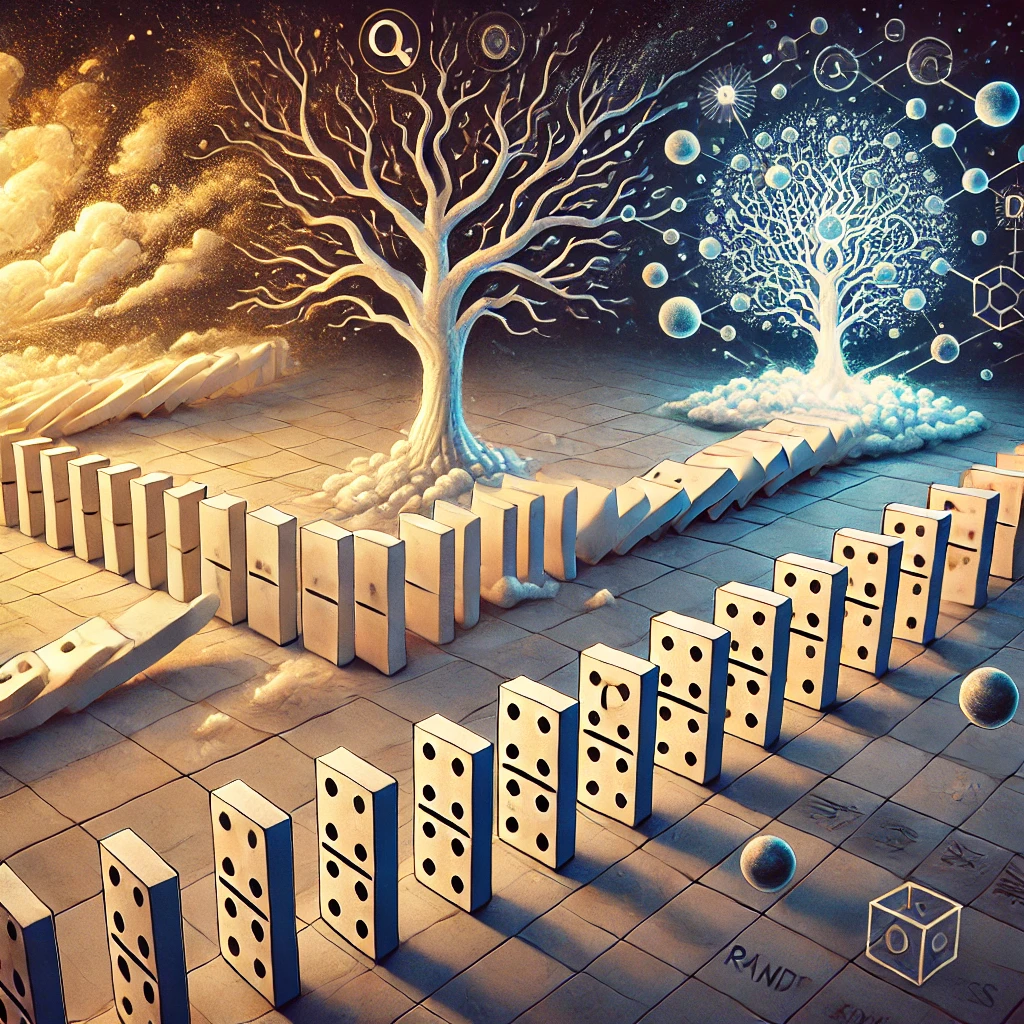
The concept of free will has been a subject of philosophical debate for centuries. Some argue that our choices are entirely our own, while others contend that the law of cause and effect, also known as determinism, leaves no room for genuine free will. In this article, we will explore the idea that the inevitable chain of cause and effect challenges the existence of valid free will, even in the face of quantum randomness.
- The Domino Effect of Causality: At its core, the law of cause and effect posits that every action reacts—a chain of events where each preceding cause inevitably leads to its subsequent effect. Accepting this fundamental principle suggests that every decision we make is a product of prior causes, whether our upbringing, genetics, or past experiences. There appears to be no room for genuine choice in this deterministic framework.
- The Illusion of Choice: Consider the choices we make in our daily lives. From what we eat for breakfast to our career paths, our decisions are influenced by countless factors, many of which we have no control over. We may feel we are making choices, but are these choices genuinely free, or are they merely the result of a web of causation predating our existence?
- Quantum Randomness and the Illusion of Free Will: Some proponents of free will turn to quantum physics for a glimmer of hope. They argue that quantum events, like the decay of radioactive particles, are genuinely random and not determined by prior causes. However, even if quantum randomness exists, it does not necessarily grant us genuine free will. Randomness, by its nature, is devoid of purpose or intention. It would be akin to substituting determinism with chaos rather than free will.
- The Challenge to Personal Responsibility: If our choices are the products of an unbroken chain of cause and effect, it raises questions about personal responsibility and accountability. How can we hold individuals responsible for their actions if those actions are the inevitable outcomes of antecedent causes beyond their control?
The law of cause and effect and the notion of determinism pose a profound challenge to the existence of genuine free will and choice. While the debate continues among philosophers, scientists, and theologians, it is essential to consider the implications of a world in which every decision is merely the culmination of prior causes. Whether our choices are predetermined by causation or influenced by random quantum events, the nature of free will remains a philosophical puzzle that continues to captivate our curiosity and challenge our understanding of human agency.